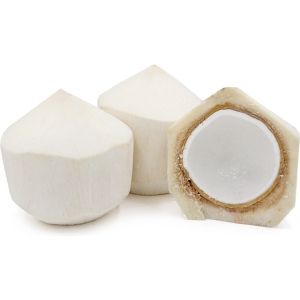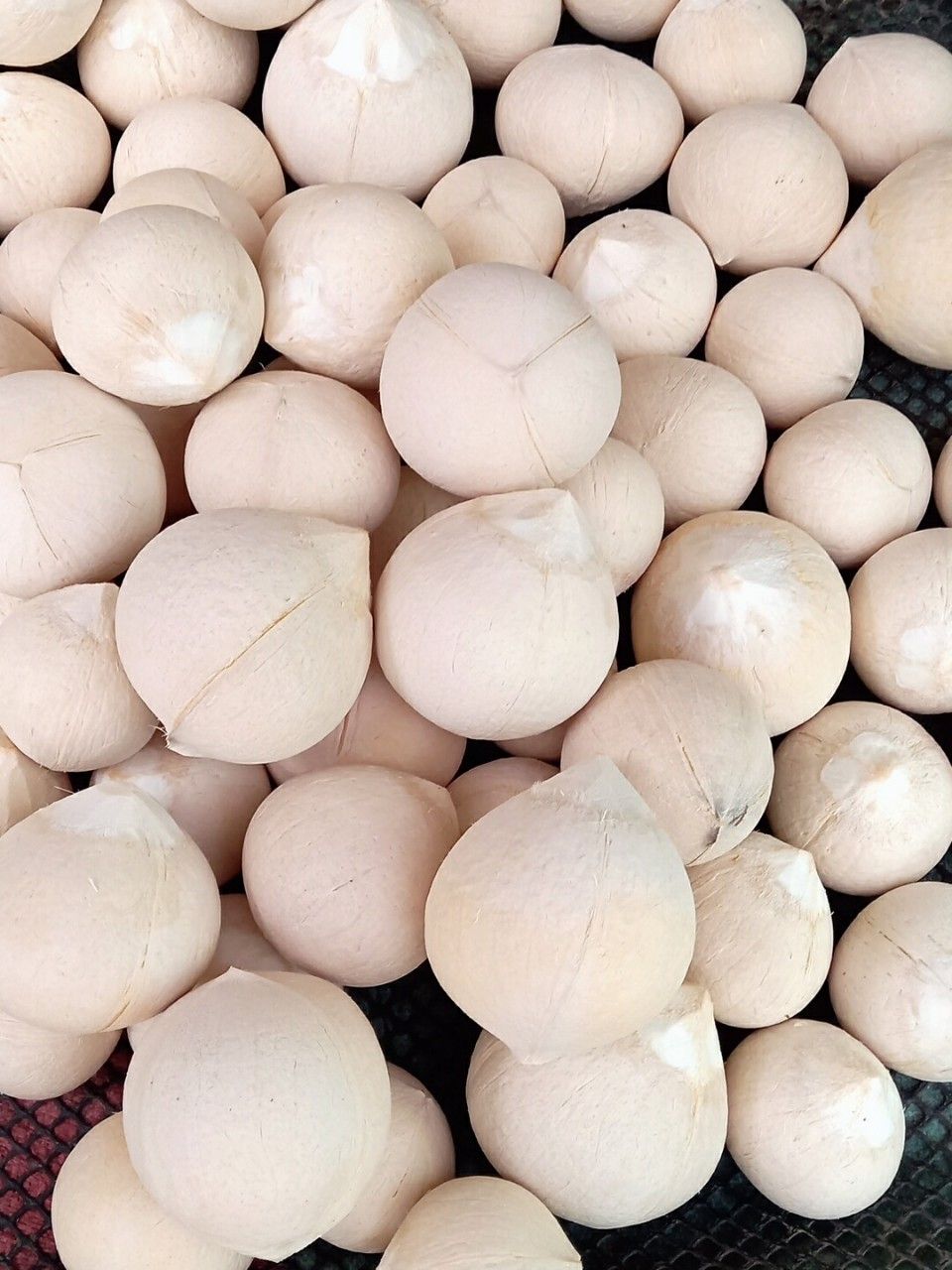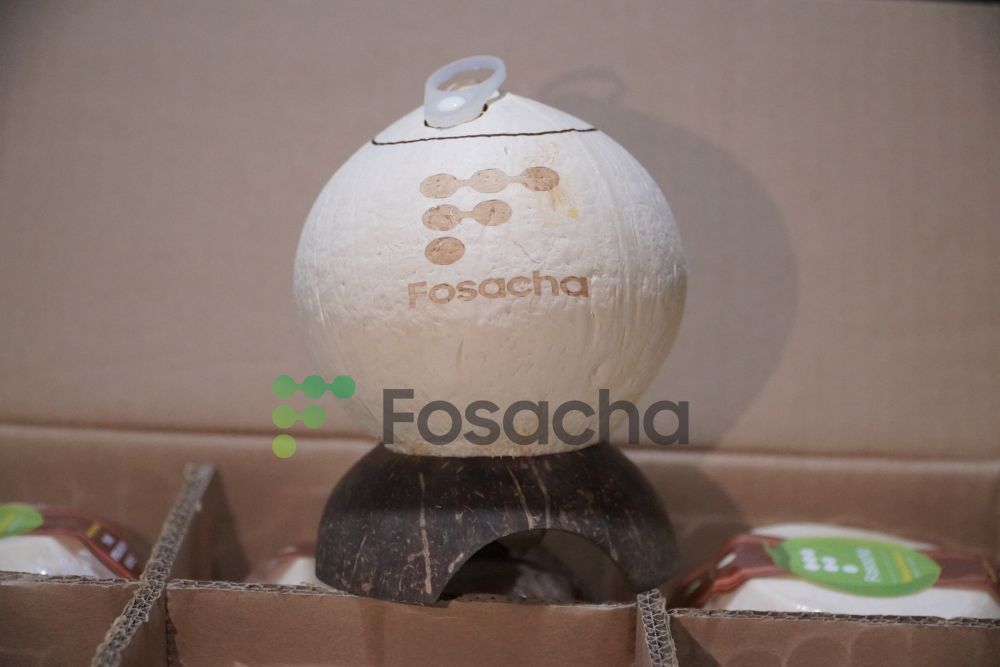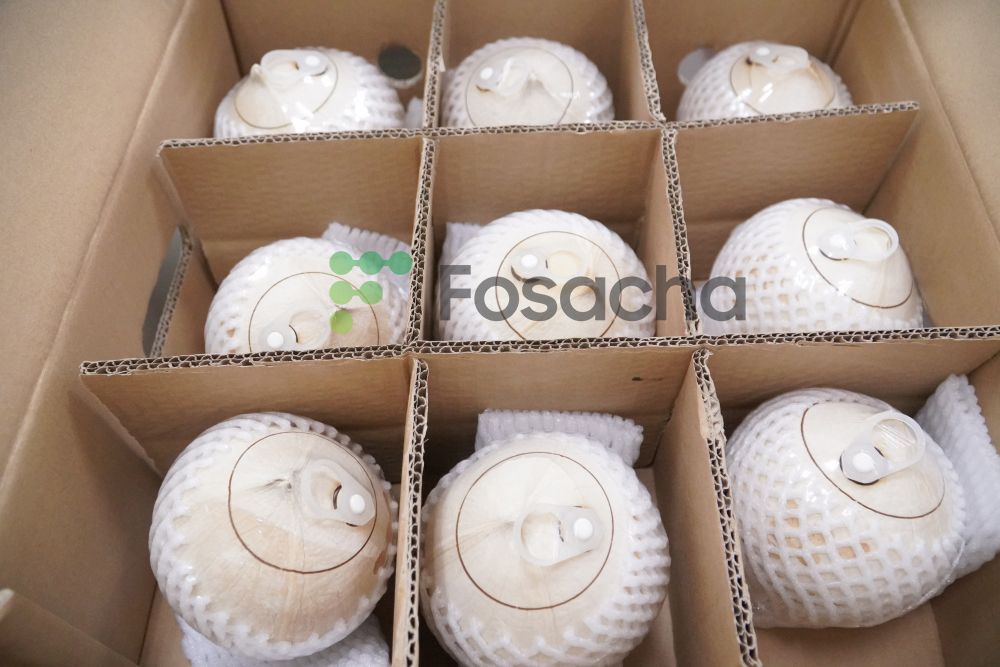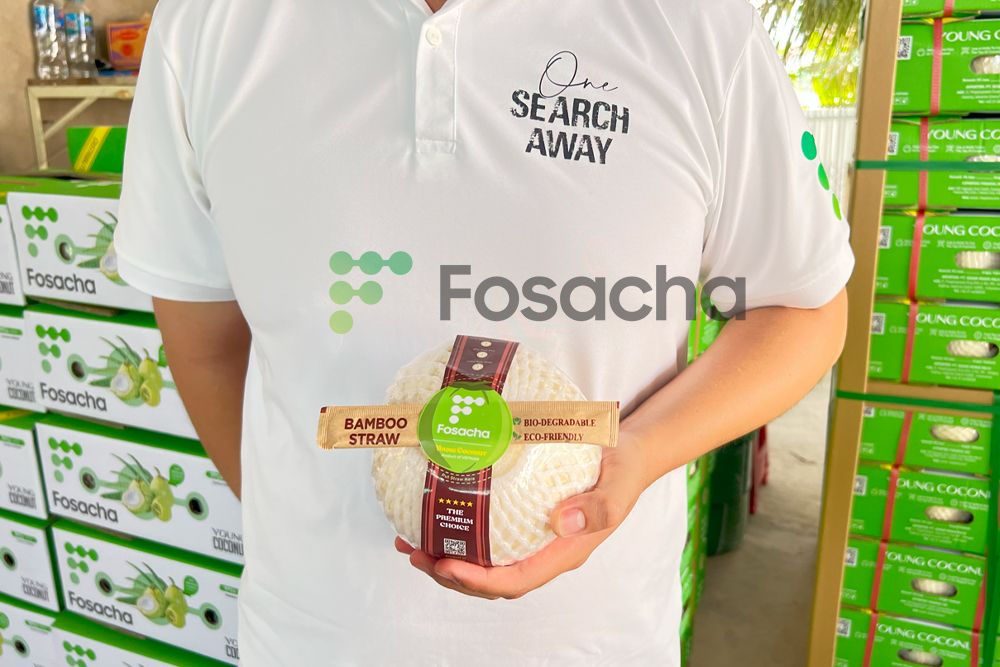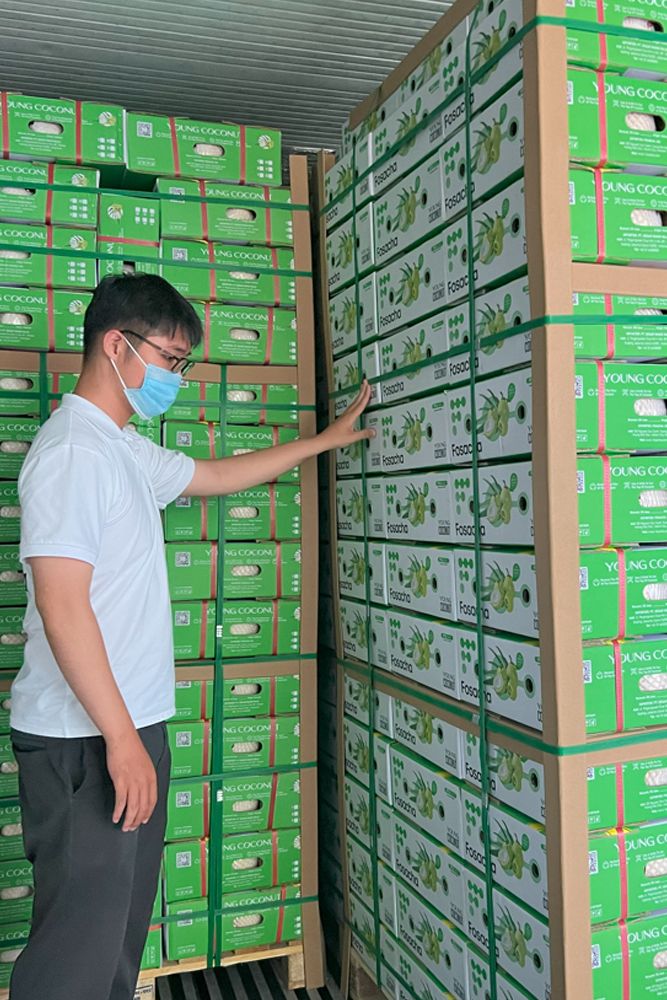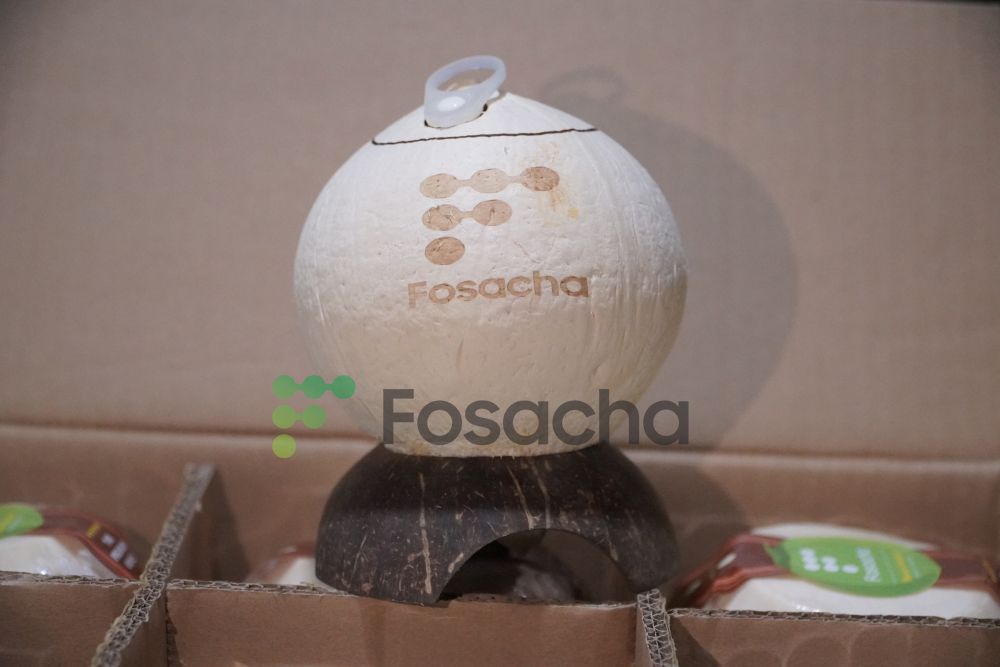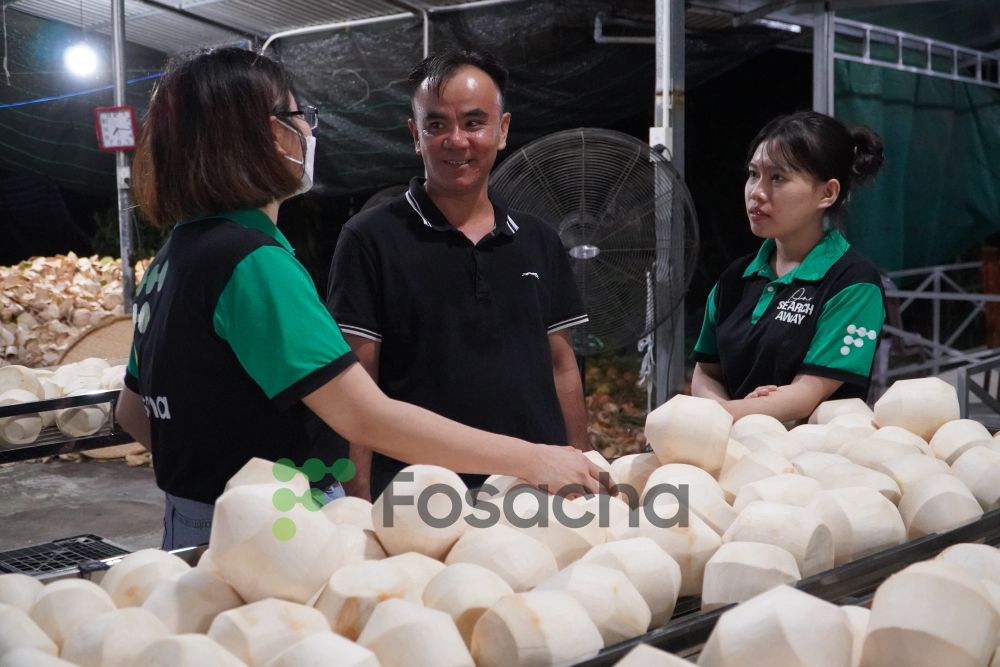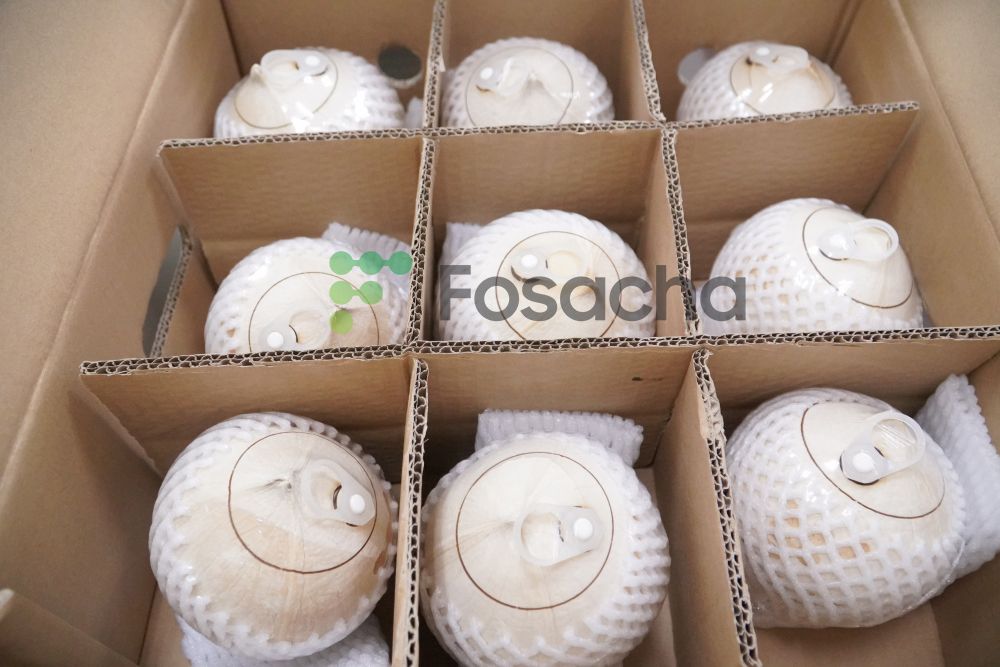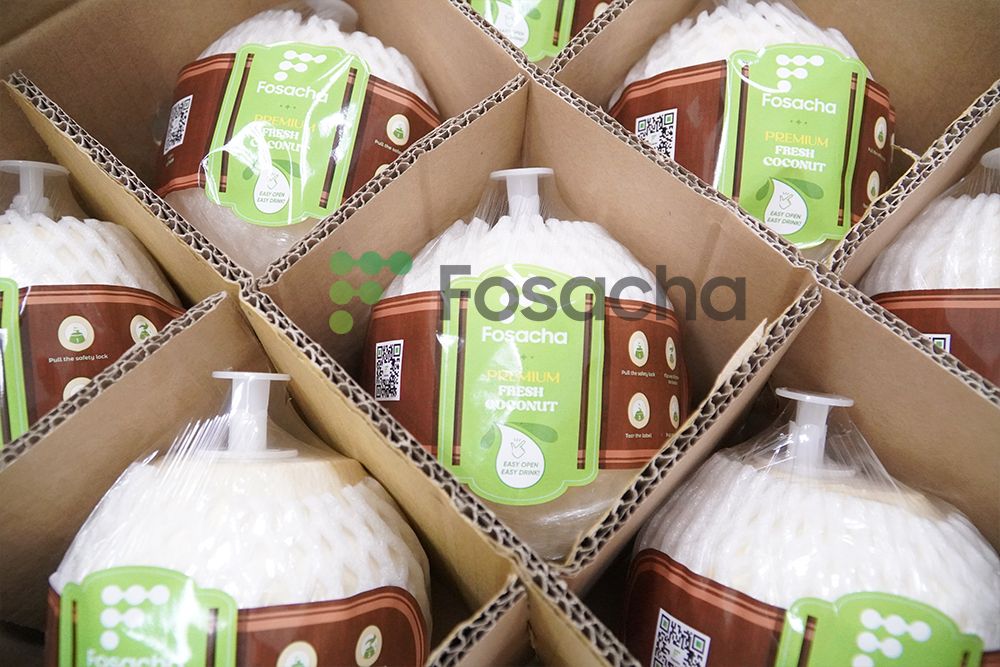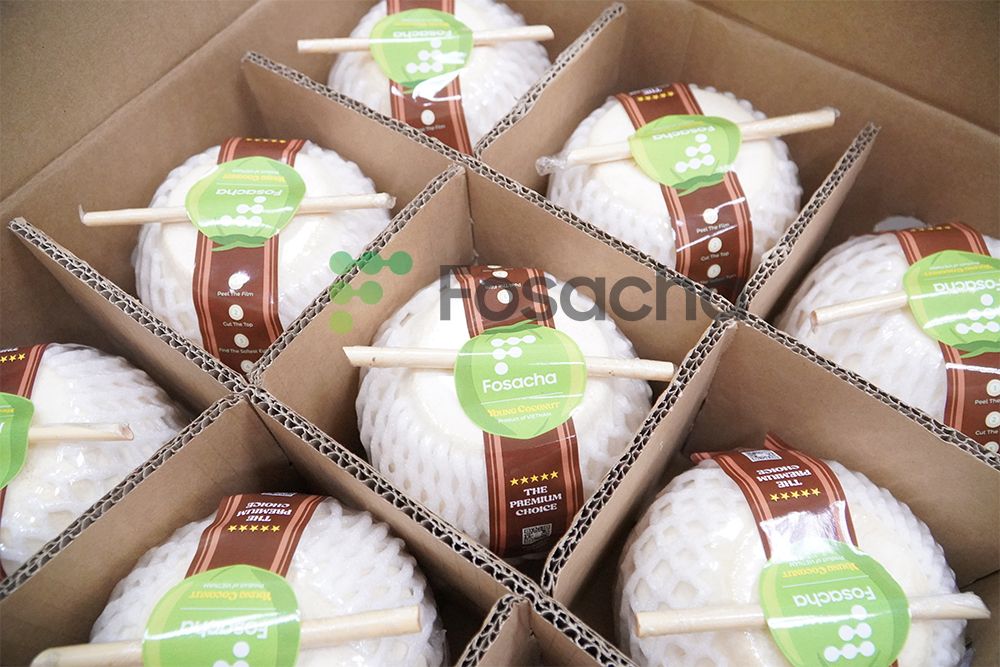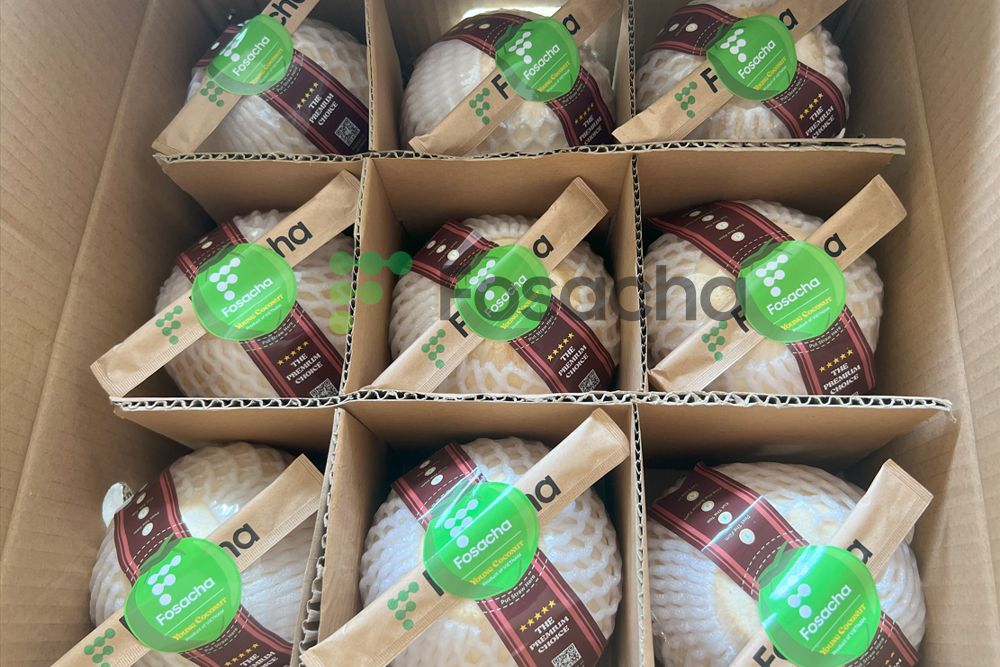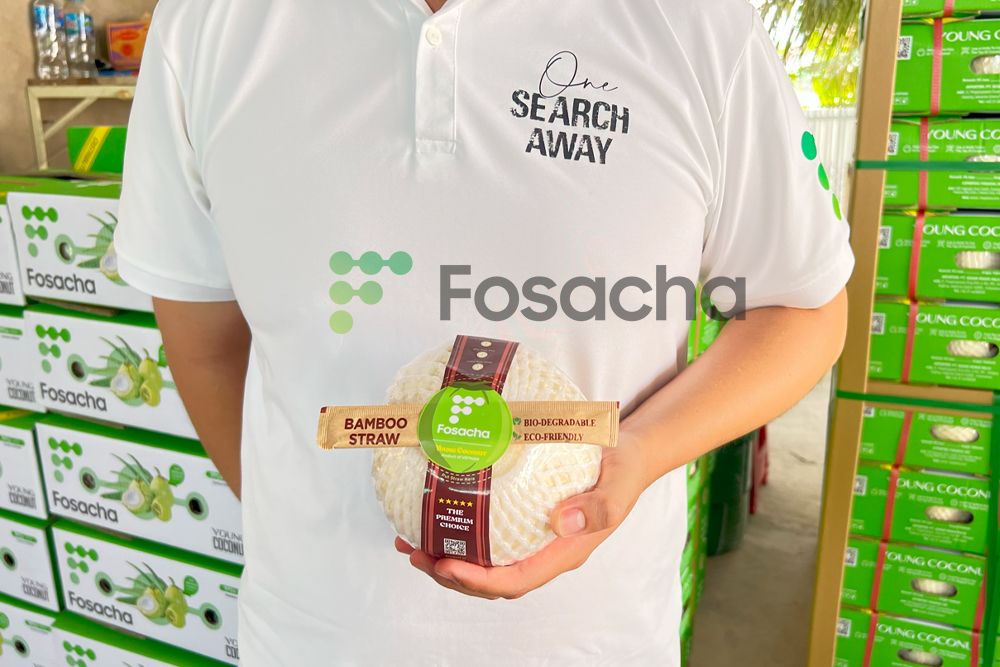COCONUT
Coconut is one of the world’s most versatile and natural products. The fruit was originated somewhere in Indo-Malaya and is one of the most important crops of the tropics. There is a wide range of coconut varieties, but the common things they have are the fibrous hardshell, the white flesh inside, and the coconut water, both are edible.
The different colors of coconuts depend on the ripeness and Green. The unripe coconuts have a lot more coconut water and while brown coconuts have a lot more meat. The flesh of coconut can have a soft or crunchy texture, and the clear liquid is refreshing and slightly sweet
 Passport
Passport
 How to eat
How to eat
Given the coconut’s versatility, the most basic way to eat a coconut is to split half the fresh fruit, eat the white flesh like a snack and drink the coconut water. Coconuts are also used as an ingredient for various dishes, sweet and savory. The oil extracted from the fruit can be used as a cooking oil substitute and the coconut milk can add more flavor and aroma to the dish.
 Health benefit
Health benefit
What makes coconut stand out from other fruits is instead of carbs. The fruit provides mostly fat, contain protein, several important minerals, and small amounts of vitamin B that holds a pivotal role in boosting the human immune system.
Coconut water improves the production of Insulin and blood sugar in the body. The fruit also contains Kinetin, Cytokinin which has anti-thrombotic, anti-cancer, and anti-aging effects on the body. The riegular use of coconut can increase the energy in the body by burning fat. The triglycerides in coconut can increase the energy by 5% and curb hunger. The nutrients present in a coconut have anti-cancer properties, especially colon and breast cancer. Moreover, coconuts provide moisture and high lipid content, which is said to prevent skin cancer. In addition, using coconut also helps to moisturize the skin from the inside, making the skin smooth and bright.
Nutrition value (per 100g):
| Water | Fresh | |
| Calories | 19 Kcal | 40 kcal |
| Protein | 0.72 g | 3.5 g |
| Carbohydrate | 3.71 g | 2.6 g |
| Fat | 0.2 g | 1.7 g |
| Dietary Fiber | 1.1 g | 3.5 g |
| Vitamin C | 2.4 mg | 6 mg |
| Potassium | 250 mg | 0 mg |
| Iron | 0.29 mg | 1 mg |
 Export Overview
Export Overview
At the moment, Vietnamese coconut has been exported to 90 countries and regions, Becoming a highly valuable exported goods. More than 200 coconut products are produced and processed for consumption and export such as desiccated coconut, coconut milk, canned coconut water, coconut candy, coconut jelly, activated carbon, only coir, coconut oil and coconut mask…
 What’s FOSACHA
What’s FOSACHA
Green Xiem Coconut is one of the exported products in FOSACHA’s portfolio. We procure our product directly from the farms of our supply chain. The coconut is grown using the traditional cultivation method and hand-harvested.
Our coconut is free from damage, soil cuts, and other infections. Most importantly, the product must be GlobalGAP-compliant, able to meet the standards of food hygiene and safety, as well as be of clear origin to be traceable. Our quality personnel tests the product on the parameters of taste and freshness during the procurement and also make sure that the packaging is also being done properly, as per international standards.
If you are interested in high quality, VietGAP, GlobalGAP compliant coconut from Vietnam, please contact us through the following information:
Company: FOSACHA Joint Stock Company
Address: 130 Nguyen Duc Canh Str, Tan Mai Ward, Hoang Mai District, Hanoi, Vietnam
Tel: (+84) 869330380
Website: https://fosacha.com/
Email: info@fosacha.com
 Storage advice
Storage advice
- Production Lead Time: 7-10 days upon packaging requirements
- Storage temperature: Stored in a cool, dry place at 2°C and CBM 20%.
 Availability
Availability









